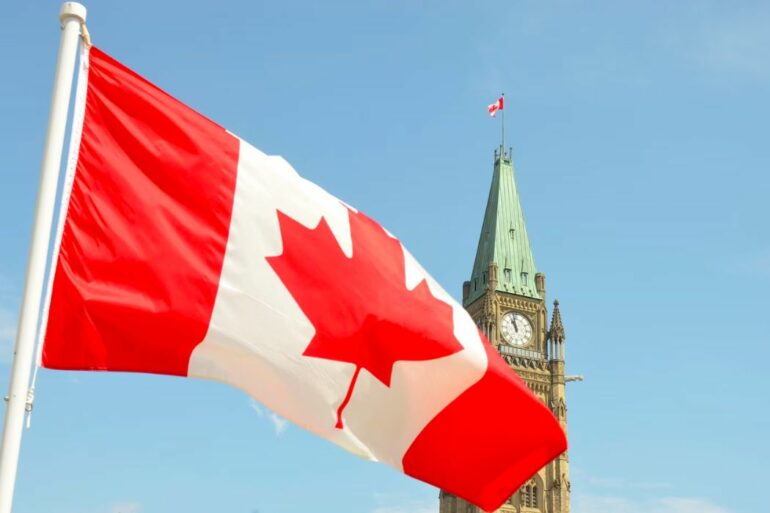Canadian tech companies are facing continued economic uncertainty and logistical challenges after the United States (US) escalated its trade war with Canada through tariff hikes and changes to key import policies.
In failing to reach a US-Canada trade deal by the August 1 deadline set by President Donald Trump, Trump signed an executive order to increase the tariff on Canadian goods entering the US from 25 to 35 percent for those items not covered under the Canada-United States-Mexico Agreement (CUSMA). The day prior, he signed a different executive order scrapping the de minimis exemption by the end of August, eliminating a loophole that allowed businesses to export goods under $800 USD into the US duty-free.
Dan Kelly
“It’s the uncertainty that is choking the Canadian economy.”
CFIB
Canadian Prime Minister Mark Carney said in a statement shortly after midnight last night that the Canadian government was “disappointed” by the decision and is continuing to negotiate a trade deal with the US. Canadian trade minister Dominic LeBlanc said today that trade talks will continue over the next few weeks. The 35-percent tariff is currently being challenged at a US federal appeals court for allegedly breaching the US constitution.
Benjamin Bergen, president of tech lobby group Council of Canadian Innovators, said in a statement that the Canadian government should prioritize building up homegrown businesses and negotiating with economic sovereignty in mind.
“We shouldn’t give up on trade negotiations with the United States; they are our largest trading partner,” Bergen said. “But we shouldn’t give away our sovereignty for market access either.”
CUSMA complications
The 10-percent tariff increase and de minimis changes could damage Canadian businesses selling direct-to-consumer goods into the US and those with US supply chains, including tech startups that sell or use hardware components.
According to Kyle Feigenbaum, CEO of gourmet dog food startup Healthybud, the changes could make or break a small company that sells directly to consumers in the US.
“If anybody’s gross margin is minimized by 35 percent, it’s going to be hard to run your business,” Feigenbaum told BetaKit.
He explained that Healthybud was lucky to have set up a US warehouse before the trade war began, avoiding any new tariff rates.
RELATED: Portless raises $24.7 million to be retailers’ port in a trade storm
Many businesses that relied on shipping goods using the $800 duty-free import rule will have to pay additional tariffs, Feigenbaum said, in addition to organizing export paperwork and finding an export broker, both of which could incur extra costs.
Dan Kelly, president of the Canadian Federation of Independent Businesses (CFIB), said the logistical burden could negatively impact Canada’s smallest operations.
“For a lot of very small businesses, startups, they won’t have gone through paperwork and hassles to demonstrate CUSMA compliance,” Kelly told BetaKit. “So they can’t use that exemption.”
Nearly a third of Canadian exporters use the de minimis rule, according to survey data CFIB collected from Canadian small and medium-sized businesses in March. Half want government support in dealing with paperwork related to CUSMA, and 30 percent of exporters are uncertain about whether they comply with the agreement, the March survey indicated.
Stephanie Lipp, CEO of MycoFutures, which is developing mushroom-based leather products, said her company is not yet at the go-to-market phase, but that trade considerations have nonetheless impacted planning. Lipp said she expected to rely on the de minimis exemption to ship small quantities of material for samples to US clients—but now, that’ll come at a cost.
MycoFutures expects its products to eventually qualify under CUSMA, but the company said that not being locked into the US market is an advantage right now.
“We have the opportunity to be strategic and which regions we prioritize our distribution and can continue to build relationships in Europe, Asia, and South America,” Lipp said.
Uncertainty never ends
The ongoing uncertainty since February has had both direct and knock-on effects on Canadian businesses, which have been left struggling to strategize and facing rising costs. Sleep tech startup Smart Nora filed for bankruptcy last month, in part due to fundraising challenges associated with the trade war. The company said a “sharp and unexpected increase in tariffs” negatively affected investor sentiment, particularly for the consumer-goods hardware industry.
Founders and industry experts say the uncertainty of whether or when a trade deal will be reached between the two countries is hurting businesses and worsening the broader economic outlook.
“It’s the uncertainty that is choking the Canadian economy,” Kelly told BetaKit.
The CFIB president compared the situation to the COVID-19 pandemic, where some businesses were buoyed at first by government support but ran out of runway as time wore on. To mitigate the trade war fallout, the federal government rolled out a multibillion-dollar aid plan to support businesses.
Kelly argued that the Canadian government should reinject the funds raised through reciprocal tariffs, such as on steel and aluminum, back into the economy to help stimulate Canadian businesses.
The tariff back-and-forth has impacted Paperplane Therapeutics, a Montréal-based medtech company whose software is programmed into a hardware device and sold to clients in the US. Logistical challenges and additional costs from hiring an import-export agency have eaten into key metrics, CEO Jean-Simon Fortin told BetaKit.
“It takes longer to recoup the cost of onboarding a customer than it used to,” Fortin said.
Fortin and Feigenbaum said the looming threat of CUSMA being up for renegotiation next year further complicates long-term business plans.
“It feels like everything is hanging by a thread,” Feigenbaum said.
Feature image by Jason Hafso on Unsplash.


